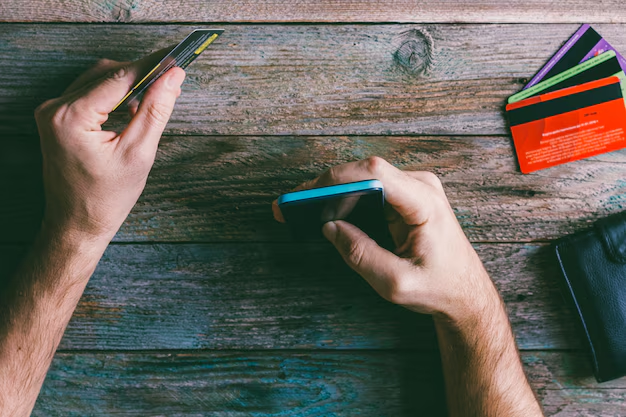Losing a credit card can be stressful, but acting quickly and methodically can help you safeguard your finances and minimize the risk of fraud. This guide provides a step-by-step approach to handling a lost credit card and preventing potential financial damage.
Step 1: Stay Calm and Check Your Surroundings

Before assuming your card is lost, take a moment to retrace your steps. Look in places like your wallet, car, or recent shopping bags. A misplaced card is often found nearby.
Step 2: Report the Loss to Your Credit Card Issuer Immediately
Contact your credit card company as soon as possible to report the loss. Most issuers have 24/7 hotlines specifically for lost or stolen cards.
Why It’s Important
- Your liability for unauthorized charges is limited to $50 under U.S. federal law, but many issuers offer zero liability for promptly reported cases.
- Prompt reporting ensures the card is deactivated, preventing unauthorized transactions.
Information to Provide
- Cardholder name
- Account number (if available)
- Last known use of the card
Step 3: Monitor Your Transactions
After reporting your card lost, closely monitor your account for any unauthorized charges. Use online banking or mobile apps to review recent activity.
What to Watch For
- Unrecognized transactions
- Small test charges, often used by fraudsters before making larger purchases
Action Steps
Dispute any fraudulent charges with your issuer immediately.
Step 4: Update Automatic Payments
If your lost card was linked to subscriptions or automatic payments, update your payment information with the new card details once issued.
Step 5: Request a Replacement Card
When you report the loss, your issuer will typically issue a replacement card with a new number.
- Replacement cards usually arrive within 7–10 business days, though expedited delivery may be available.
Step 6: Enable Alerts and Monitor Your Credit Report
Set Up Account Alerts
Activate text or email alerts for:
- Large transactions
- Foreign transactions
- Balance changes
Monitor Your Credit Report
Check your credit report regularly to ensure no fraudulent accounts have been opened in your name.
Step 7: Consider Freezing Your Credit (If Necessary)
If you suspect your card was stolen and your personal information is at risk, consider placing a credit freeze with major credit bureaus to prevent new accounts from being opened.
Step 8: Practice Preventive Measures
1. Secure Your Cards
- Use a wallet with secure compartments.
- Avoid carrying unnecessary cards.
2. Use Virtual Card Numbers
Some issuers offer virtual card numbers for online purchases, which reduce the impact of a lost physical card.
3. Be Vigilant Online
- Avoid sharing credit card details over unsecured networks.
- Regularly update passwords for online accounts linked to your card.
What Happens After You Lose a Card?
- Old Card Deactivation: The lost card becomes inactive once reported.
- New Card Issuance: A new card with a different number is issued.
- Impact on Your Credit: Reporting a lost card does not affect your credit score, but unauthorized charges or linked fraud can if unresolved.
Conclusion
Losing a credit card doesn’t have to lead to financial disaster. By taking immediate action, reporting the loss, and monitoring your accounts, you can protect yourself from fraud and minimize inconvenience. Establishing preventive habits, such as securing your cards and enabling transaction alerts, can further safeguard your finances in the future.
FAQs
1. What is the first thing I should do if I lose my credit card?
Immediately contact your credit card issuer to report the loss and deactivate the card.
2. Will I be held responsible for fraudulent charges?
Under U.S. law, your liability is limited to $50 for unauthorized charges, and most issuers offer zero liability if the loss is reported promptly.
3. How long does it take to get a replacement card?
Replacement cards typically arrive within 7–10 business days, though expedited shipping options may be available.
4. Should I freeze my credit if I lose my card?
A credit freeze is recommended if you suspect identity theft or that your personal information is at risk.
5. Can I use my old credit card if I find it after reporting it lost?
No, once a card is reported lost, it is permanently deactivated. You must use the replacement card.
6. What if my lost card is used fraudulently before I report it?
You should dispute the charges with your issuer. Many issuers waive liability for unauthorized transactions if reported promptly.
7. Will losing my card affect my credit score?
No, losing a card itself does not impact your credit score. However, unresolved fraud linked to the card can.

